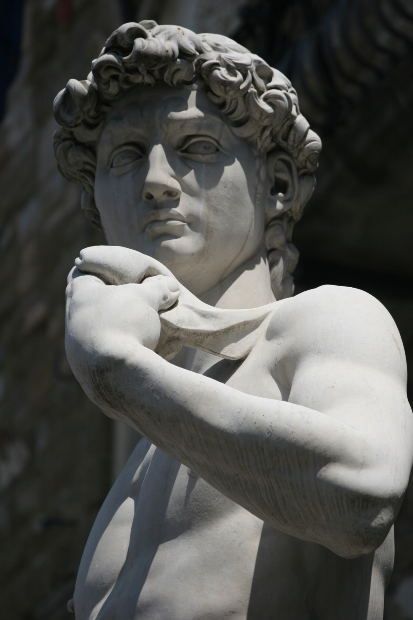“The sculpture is already complete within the marble block, before I start my work. It is already there, I just have to chisel away the superfluous material.”
I can think of no better description of my writing process than this quote by Michelangelo. If I have succeeded with a story or essay, I have uncovered essential truths, treasures I knew were there. Clearing away murky thoughts and vague language is hard labor, and because I write literary short fiction (the red-haired stepchild of literature) the only payoff is my satisfaction.
The most difficult part of the writing process is the launch, when I start with a blank page and begin the harrowing process of elimination, discarding one option after another in an effort to pin down the right voice, the right setting, the right time, the right elements, all of which are entirely subjective. I will circle an idea for days, sometimes weeks, before finally typing the first few words. The middle phase is only marginally easier: there’s at least some structure to work with, but the ending is another crapshoot. If it doesn’t fall just right, the whole story goes with it. And of course it is not enough to prize meaning. I must also find the right rhythm, language that is pleasing and precise.
I very much admire writers who craft blockbusters, not so much for the money they make, but for their ability to sustain the vision required to compose multi-generational sagas and complex mysteries. My mind doesn’t work that way. I focus in, not out, drawn to the close-up and personal. Perhaps this distinction, whether we are outward- or inward-focused writers, is determined in childhood. Troubled and frightened in my early years (as so many of us are), I took solace in the world at my fingertips, particularly the natural world, which contains so many tiny wonders—most of my essays are inspired by nature.
Michelangelo lived in poverty. I don’t know what sort of childhood he had, what fueled his extraordinary vision or compelled his unfathomable effort. Critical of his own work, he often lamented the time it took him to craft his paintings and sculptures, insisting that if people knew how laborious his process was, they would never have considered him a master. Even so, there must have been times when, looking at a finished piece, he was suddenly, irrepressibly, jubilant.
Authors are sometimes asked if they have a specific audience in mind when they write. I don’t. As soon as I start working on a story, I am immune to everything else. I suppose I write for myself, or more specifically, for the critic in me. Exacting, exhausting, this critic is also my biggest champion, retrieving me when I sink into despair and reminding me of the joy that awaits. Which puts me in mind of another Michelangelo quote:
“The greater danger for most of us is not that our aim is too high and we miss it, but that it is too low and we reach it.”
***
Jean Ryan, a native Vermonter, lives in Napa, California. Her stories and essays have appeared in a variety of journals. Nominated several times for a Pushcart Prize, she has also published a novel, LOST SISTER. Her debut collection of short stories, SURVIVAL SKILLS, was published in April 2013 by Ashland Creek Press and was short-listed for a Lambda Literary Award. Please visit her website at http://jean-ryan.com/.


